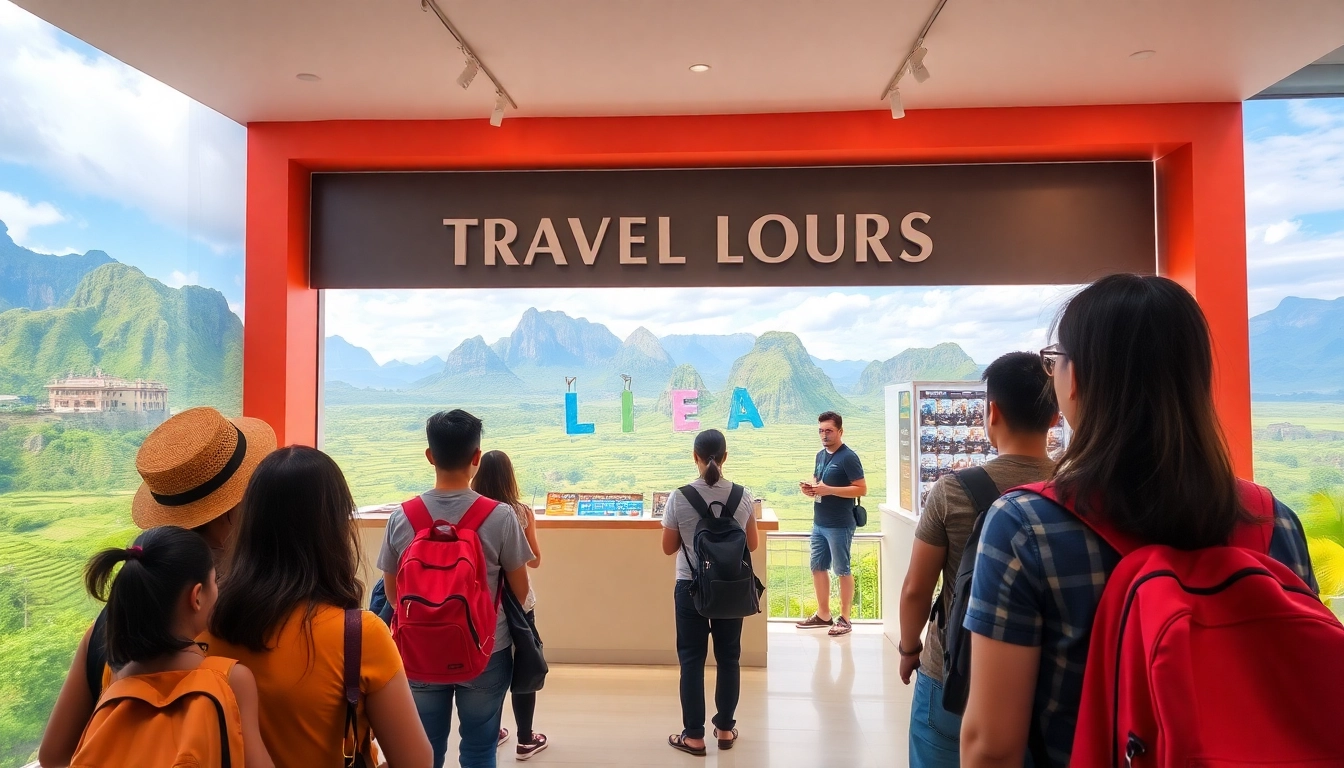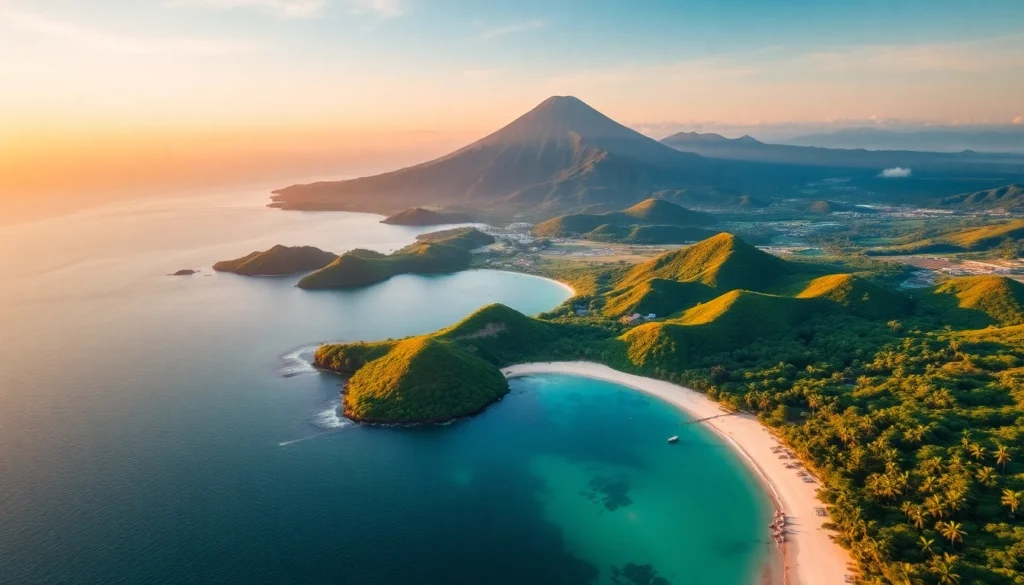Understanding the Basics of Tour Planning in Indonesia
Embarking on a journey across Indonesia offers travelers an unparalleled blend of rich culture, pristine nature, and vibrant local life. Whether exploring the sacred temples of Bali, trekking the volcanic peaks of Java, or discovering the untouched beauty of Lombok, organizing an effective and memorable tour requires meticulous planning. To ensure that your exploration is seamless and enjoyable, understanding the foundational concepts of tour planning in Indonesia is essential. This section delves into what constitutes a tour within this diverse archipelago, the types of tours available, and the key components of a well-structured travel package.
What Defines a Tour in the Indonesian Travel Context?
A tour in Indonesia is more than just moving from one place to another; it embodies a curated experience designed to fulfill specific interests while considering logistical, cultural, and environmental factors. In the Indonesian context, a tour typically involves guided or self-directed visits to multiple destinations, often encompassing cultural landmarks, natural wonders, or adventure activities. Tours could be short day trips or extended multi-week adventures and are often packaged to include transportation, accommodations, and activities.
For example, a typical Bali cultural tour might include visits to Uluwatu Temple, traditional dance performances, and local markets. Conversely, an island-hopping tour around Lombok involves snorkeling, beach relaxation, and eco-tours. The core idea is providing a comprehensive, immersive experience that allows travelers to explore Indonesia’s multifaceted attractions confidently and comfortably.
In the broader travel industry, the term ‘tour’ is associated with organized group trips led by guides, but it can also refer to independent customized journeys. The overarching goal remains the same: to facilitate memorable, educational, and enjoyable travel experiences tailored to individual or group preferences.
Types of Tours: Cultural, Nature, Adventure, and Specialty
Indonesia’s vast geographical and cultural diversity offers a wide array of tour types suited to varied interests:
- Cultural Tours: These immerse visitors in Indonesia’s rich heritage, showcasing traditional dances, crafts, rituals, and historical sites. Examples include Java’s Borobudur and Prambanan temples or the Batik workshops in Yogyakarta.
- Nature Tours: Designed to explore Indonesia’s natural beauty, these include rainforest trekking in Sumatra, birdwatching in Borneo, or visiting endemic wildlife sanctuaries in Bali’s Ujung lakes.
- Adventure Tours: For thrill-seekers, options include mountain climbing, white-water rafting, diving expeditions, and volcano trekking, especially around Mount Rinjani or Ijen Crater.
- Specialty Tours: These cater to niche interests such as culinary experiences, eco-tourism, spiritual retreats, or luxury cruises around Indonesia’s islands.
By categorizing tours in this manner, travelers can select experiences that best align with their preferences, ensuring a tailored journey that excites and satisfies their curiosity.
Essential Components of a Well-Organized Tour Package
An effective Indonesian tour package typically comprises:
- Clear Itinerary: Detailed daily plans, including destinations, activities, rest periods, and optional excursions.
- Transport Arrangements: Reliable transportation options such as private vans, boats, or domestic flights, depending on locations.
- Accommodation: Comfortable and appropriately located lodgings, from luxury resorts to eco-lodges or homestays.
- Guides and Experts: Certified local guides who provide cultural insights, safety, and language support.
- Activities and Experiences: Authentic interactions like local workshops, traditional performances, or eco-adventures.
- Meals and Refreshments: Inclusion of local cuisine to enrich the cultural immersion.
- Support and Insurance: 24/7 assistance, travel insurance, and contingency planning for unforeseen events.
A comprehensive package balances these components, providing travelers with convenience, safety, and an enriching experience. Engaging with reputable tour operators, such as those trusted in Indonesia, ensures quality assurance throughout your journey.
How to Choose the Right Tour for Your Vacation
Selecting a suitable tour requires careful assessment of personal preferences, travel objectives, and available resources. Aligning your interests with the right provider can turn a good trip into an extraordinary adventure. Here, we explore practical steps to help you evaluate options effectively.
Assessing Your Travel Interests and Objectives
Begin by clarifying what you wish to achieve during your trip. Are you seeking cultural insights, adventure thrills, relaxation, or a combination? Understanding your motivations helps narrow down options. For instance, if your goal is to experience Indonesia’s historical sites, focus on cultural and heritage tours; if discovering untouched landscapes excites you, nature or eco-tours might be preferable.
Reflect on your preferred pace: do you favor a leisurely exploration with ample free time or an activity-packed itinerary? Defining these criteria will shape your choices and ensure the tour aligns with your expectations.
Evaluating Tour Providers and Their Offerings
Research is crucial. Start with reputable agencies such as Golden Rama Tours, Dwidaya Tour, or Angkasa Tour, which have established credibility and positive customer feedback. Examine their website, verify their licenses and certifications, and review sample itineraries. Look for transparency about costs, inclusions, and cancellation policies.
Assess the guides’ expertise—are they fluent in your language? Do they have local cultural or environmental knowledge? Read customer reviews and seek testimonials to gauge overall satisfaction and safety standards.
Compare the value propositions: Are the tours customizable? Do they include authentic experiences or additional perks? These factors heavily influence the overall experience.
Budgeting and Customization Options
Set a realistic budget considering all costs: tour price, flights, visas, personal expenses, and optional activities. Some tours offer tiered packages to accommodate different budgets, from budget-friendly group tours to luxurious private excursions.
Request customization if you have specific interests or needs. Many providers now offer tailor-made itineraries—ideal for repeat visitors or those with particular passions such as culinary tourism or wellness retreats. By discussing your preferences upfront, you can craft an unforgettable journey that resonates personally.
Pro tip: Always verify what is included and what incurs additional charges to avoid surprises and ensure your planning aligns with your financial capacity.
Executing a Successful Tour Experience in Indonesia
Proper preparation and adherence to local customs are pivotal to maximizing your Indonesian tour experience. From initial planning to on-the-ground etiquette, this section offers practical insights for ensuring a smooth and enjoyable trip.
Preparation Tips Before Your Tour
- Research Destinations: Gain basic knowledge about cultural norms, local customs, and the history of your destinations.
- Health Precautions: Consult travel health advisories; get necessary vaccinations and carry essential medicines.
- Visa and Documentation: Confirm visa requirements specific to your nationality, and prepare valid travel documents.
- Packing Smartly: Pack appropriate clothing for weather, culture, and activities. Include essentials like sunscreen, insect repellent, and chargers.
- Financial Preparedness: Carry some cash in local currency (Indonesian Rupiah) and have access to digital payment options where accepted.
- Communication Plans: Download offline maps, travel apps, and ensure your mobile plan supports data in Indonesia.
On-Tour Safety and Local Etiquette
- Safety First: Adhere to guide instructions, avoid risky activities alone, and stay informed about local safety advisories.
- Respect Local Customs: Dress modestly when visiting religious sites, ask permission before photographing locals, and observe traditional etiquette.
- Environmental Responsibility: Minimize plastic use, dispose of waste responsibly, and participate in eco-friendly practices.
- Health & Hygiene: Use bottled water, wash hands frequently, and follow hygiene protocols.
Capturing Memories and Feedback for Future Trips
Document your journey through photos, videos, and journaling. Respect local communities by being considerate, and seek authentic interactions. After the trip, provide constructive feedback to your tour provider, which helps improve services and ensures better experiences for future travelers.
Sharing your stories and reviews can also inspire others and contribute to Indonesia’s sustainable tourism growth.
Measuring the Impact and Benefits of Taking a Tour
Participating in organized tours in Indonesia offers substantial personal, cultural, and societal benefits. Beyond leisure, they foster a deeper appreciation of diverse cultures and ecosystems. This section examines how tours contribute to individual growth, community development, and sustainable tourism practices.
Cultural Appreciation and Personal Growth
Traveling through Indonesia exposes visitors to its rich tapestry of traditions, arts, and history. Engaging with local communities, trying traditional cuisines, and participating in cultural activities instill a sense of respect and understanding. Such experiences often lead to personal development, including increased cultural awareness, adaptability, and communication skills.
Research shows that immersive travel enhances empathy and reduces cultural biases, serving as a form of informal education that stays with travelers long after their journey concludes.
Supporting Local Communities and Sustainable Tourism
Tourism, when managed responsibly, significantly benefits local economies. By choosing eco-friendly tours or community-based programs, travelers support small-scale entrepreneurs, artisans, and service providers, thereby fostering sustainable development. For example, participation in local craft workshops or homestay experiences directly finances community projects and preserves cultural heritage.
To maximize these benefits, tourists should prefer operators committed to environmental conservation, cultural preservation, and fair employment practices. Certification programs and eco-labels can serve as valuable indicators.
Long-Term Travel Planning and Recommendations
Establishing an ongoing relationship with trusted tour operators encourages cumulative benefits, such as special discounts, personalized services, and deeper cultural immersion. Long-term planning also involves incorporating eco-conscious choices, selecting destinations that prioritize conservation, and advocating for responsible tourism practices.
As Indonesia continues to develop its tourism infrastructure, staying informed about emerging destinations and sustainable initiatives ensures your travel contributes positively to local communities and the environment.
Future Trends and Innovations in Indonesian Tour Services
The landscape of travel is continually evolving, with technological, environmental, and social factors shaping the future of Indonesian tours. This section explores upcoming trends and how they promise richer, more responsible, and more personalized travel experiences.
Emerging Destinations and Unique Experiences
While iconic sites remain popular, new destinations—such as off-the-beaten-path islands, indigenous villages, and conservation areas—are gaining prominence. These emerging spots offer authentic encounters away from typical tourist crowds, appealing to adventurous and eco-conscious travelers.
For example, the remote islands in Raja Ampat or the cultural villages around Dieng Plateau are becoming sought-after for their untouched beauty and traditional lifestyles.
Technological Advances in Tour Booking and Experience Customization
Innovation in digital platforms facilitates seamless booking, virtual tours, and personalized itineraries. Mobile apps with AI-driven recommendations, augmented reality guides, and online community reviews enhance user engagement and confidence in their choices.
Meanwhile, virtual reality previews allow travelers to experience destinations virtually before physically visiting, aiding better decision-making and expectation management.
Environmental and Social Responsibility in Tours
Sustainable tourism practices are increasingly integrated into tour operations. Eco-certifications, carbon offset programs, and community engagement initiatives are becoming standard. Tour companies are adopting biodegradable materials, renewable energy sources, and promoting conservation efforts.
This shift ensures that tourism contributes to environmental preservation, social equity, and economic resilience, securing Indonesia’s natural and cultural treasures for future generations.

